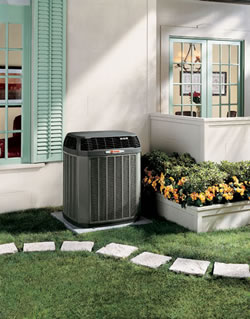flynnibus
Premium Member
I'm certainly not an expert on gondola systems or the possible ways to power them. I have stated numerous times I have no personal experience with riding these things let alone designing them. What I know of the subject I learned from reading here and several other online sources. Since everything you read on the internet is definitely true I'm sure I'm correct
The ultracapacitor option is somewhat proven technology. It's used on the London gondola right now. From everything I've read it's not highly reliable right now with that particular system. Reports of issues with cars without working AC. It makes sense there would be growing pains since the technology is relatively new (or at least it's use in a large scale gondola system). Traditional batteries (I think someone mentioned Tesla batteries earlier) that would be charged overnight and used all day would be far too heavy to be practical. In the not too distant future if battery technology continues to increase at the current pace this will be an option. Tesla may be the driver of that innovation with its gigafactory. Once the technology is there I could see gondolas take off in cities as legit mass transit options. I know Austin, Cleveland and Chicago are all considering options to add gondolas for tourism and mass transit. I think we're maybe 5 to 10 years away.
Something that I am somewhat knowledgable on would be the solar power option. I work in the energy industry for a company that has built quite a few solar systems from huge multi-acre utility scale projects in the desert with thousands of panels to large systems for hotels and other industrial customers to residential home solar down to small panels on the roof of bus/train stations to power lights and advertisements. If they add panels to the roof of the gondolas it would generate about enough power to maybe run some LED lights and/or possibly a small fan. The closest thing I've seen to solar powered AC on a small scale like this was in Phoenix where a sample light rail shelter was setup which used solar panels to run fans to circulate cool air created using chilled water. It's basiclay an outdoor AC system to cool people off with a blast of cool air while they wait when they push a button. Guess it comes in handy on 100+ degree days. Downtown Phoenix already has the chilled water system in place which is really doing most of the cooling work so it was relatively easy to install this system but the solar power isn't directly creating cool air, just running a few fans to circulate it. Here's some pictures of the system:
View attachment 212879
View attachment 212880
Yes evaporation systems are a simpler means (and lower power) cooling system. But they need hot dry air climates to be effective. They don't work well in recirculating or high humidity environments (because the water won't evaporate as efficiently when the air is already saturated). They are ideal for lower power needs since it's basically just a fan... and some way to load up the fresh water.
Condenser/compressor systems are work/energy cycles... you actually spend energy to compress the refrigerant... and the cooling comes from changing the volume rapidly. To repeat, you have to invest more energy - you can't get away from that. People keep asking like "can't we just get free cooling?" - not if we want to respect the laws of conservation of energy
The process is very energy intensive and why it's difficult to include in low voltage systems without a lot of power.



